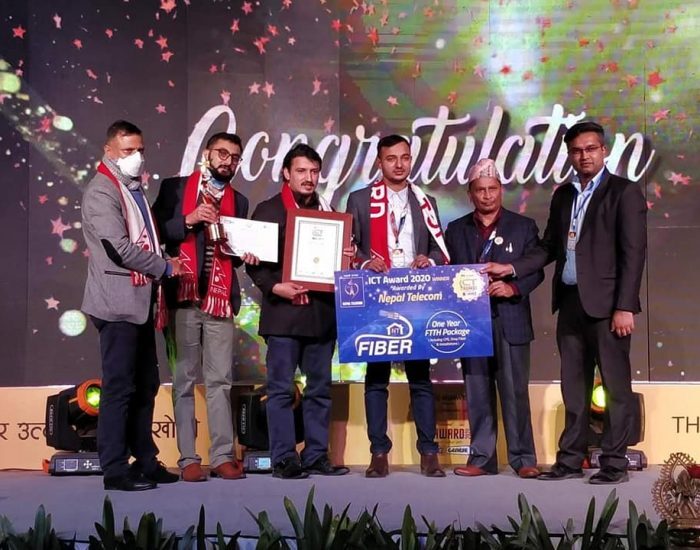Zero Tolerance Policy
Overview
Code for Core Innovation Pvt. Ltd is strictly aligned to “Zero Tolerance Policy (ZTP)” to proactively prevent and manage employee behavior that is illegal, inappropriate, or against our organization’s Code of Conduct. This Policy provides clear direction for employees and makes it easy to understand when an employee has veered off course. ZTPs encourage positive workplace interactions and empower employees to speak up when they face behavior that violates the Policy. In addition to decreasing unwanted workplace behaviors.
Our Policy also:
- Provides clarity to employees on topics such as workplace behavior and disciplinary processes
- Improves workplace culture and employee performance by making employees feel more psychologically and physically safe at work
- Minimizes organizational risk by reducing unwanted workplace behavior and providing leaders with a method to quickly and effectively resolve conflict
Our ZTP takes into account several disciplinary actions and unique organizational needs while including specific references to diversity, inclusion, harassment, discrimination, criticism, narcotics, gender-based outbreaks of violence, hate speeches, as well as physical and emotional violence in the workplace.
Zero Tolerance Policy Template
Code for Core Innovation’s Zero Tolerance Policy is part of our commitment to providing a safe and dignified work environment for all employees, regardless of gender, race, ethnicity, sexual orientation, disability, religion, or any other aspect of their identity. All employees are responsible for conducting themselves in a professional and inclusive manner, and disciplinary action will be taken in situations where an employee’s behavior violates this expectation. The Policy covers harassment, bullying, and discrimination both in and out of the organizational premises and provides a standard for addressing allegations of inappropriate behaviour, ensuring fairness and equal treatment.
- Policy
Any employee who is found to have been involved in harassment, bullying, or discriminatory behavior will be subject to immediate disciplinary action, up to and including termination. If Code for Core Innovation becomes aware of a contractor or vendor engaged in inappropriate behavior, the relationship will enter a probationary period or be terminated, depending on the severity of the incident.
When Code for Core Innovation becomes aware of an incident involving harassment, bullying, or discriminatory behavior an internal independent third party will investigate the matter. During the investigation, the accused employee(s) may be removed from the working environment and, in extreme cases, may be suspended on full pay. Employees may refer to [insert policy name and location related to harassment and investigations] for more information on Code for Core Innovation’s workplace harassment complaints and investigations process.
To ensure a safe and inclusive workplace, all employees are asked to report instances in which they experienced or witnessed harassment, bullying, or discrimination (as defined below). To notify us of the incident, please reach out to Mr. Pramod Pokhrel, hr@codeforcore.com, 9851173141. When you reach out, we ask you to include the following information:
- Name(s) of the individual(s) engaged in inappropriate behavior
- Your name (you are encouraged to submit this information but it is not mandatory. You can make an anonymous report if you wish).
- Name(s) of the individual(s) targeted by the inappropriate behavior (if you are a witness). If you have discussed the situation with the victim(s) and they requested to remain anonymous, please respect their wishes.
- A description of the inappropriate behavior and scenario under which it occurred
- Date(s) and time(s) of the event(s)
- Any additional supporting evidence if any.
Fairness
All employees at Code for Core Innovation are guaranteed a fair and impartial investigation process. The integrity of the investigation is the joint responsibility of the senior leadership and Board of Directors, whose personal biases and individual relationships will never factor into the investigation. If a member of leadership or Board of Directors has a direct or indirect conflict-of-interest, they will recuse themselves from the processes. To ensure fairness, investigations will be carried out by the Code for Core Innovation Human Resource Officer, an independent third party with no actual or perceived conflict of interest in the outcome.
Transparency
Code for Core Innovation commits to a discrete but transparent investigation process. Throughout the investigation, all involved parties (i.e., the employee(s) making the complaint(s) as well as the employee(s) accused of misconduct) will be provided regular updates as to the status of the case. After the investigation has been concluded, a detailed written response will be provided. At all meetings and interviews, both parties have the right to be accompanied by a fellow employee or a legal professional.
- Who Is Subject to Our Policy?
All Code for Core Innovation employees, volunteers, contractors, and vendors are expected to comply with the Zero Tolerance Policy. This includes senior leadership and the Board of Directors. An inclusive culture is only made possible by buy-in and cooperation from every employee, regardless of their role or position.
III. Prohibited Conduct
The Policy applies to any individual who engages in the following behavior(s):
- Harassment –The Occupational Health and Safety Act defines workplace harassment as “engaging in a course of vexatious comment or conduct against a worker in a workplace that is known or ought reasonably to be known to be unwelcome.” More simply put, harassment is any one-time or repeated unwanted physical, verbal, or non-verbal conduct that violates a person’s dignity or creates an intimidating, hostile, degrading, uncomfortable, or toxic environment.
Examples of harassment include, but are not limited to:
- Making threatening remarks
- Sexual assault
- Gender-based insults or jokes causing embarrassment or humiliation
- Repeated unwanted social or sexual invitations
- Inappropriate or unwelcome comments on a person’s physical attributes or appearance
- Bullying – Bullying is any physical, verbal, and non-verbal conduct that is malicious or insulting. Bullying can make a person feel vulnerable, excluded, humiliated, undermined, fearful, or threatened. Bullying can take the form of physical, verbal, and non-verbal conduct. Examples of bullying include, but are not limited to:
- Physical threats
- Psychological threats
- Overbearing or intimidating levels of supervision
- Shouting at colleagues in public or private
- Spreading malicious rumors
- Discriminatory Behavior – Discrimination refers to behaviour that treats people differently or adversely because of one or more of the facets of their identity, including race, color, ethnic origin, gender expression, religion, age, sex, sexual orientation, marital status, family status, physical or mental disability, or genetic characteristics. Examples of discrimination include, but are not limited to:
- Making insensitive jokes
- Factoring an individual’s identity into a hiring decision
- Purposefully excluding a colleague on the basis of their gender
- Using a racial slur
- Microaggressions – Microaggressions refers to obvious or subtle, direct or indirect behaviors and comments which reference an individual’s personal identity, such as their race, gender, ethnic origin, religion, or age. Over time, microaggressions can have lasting emotional and mental effects on the individual or individuals targeted and can contribute to a toxic and non-inclusive workplace. Examples of microaggressions in the workplace can include, but are not limited to:
- Calling a woman “bossy”
- Repeatedly calling a racialized employee by the name of a different person of the same race
- Asking a racialized employee where they are “really” from
- Commenting on a person’s physical appearance in reference to racial characteristics such as skin tone
- Scheduling meetings or important deadlines on religious or cultural holidays
- Disciplinary Action
Employees who are found to be in violation of the Zero Tolerance Policy may face a variety of disciplinary actions, up to and including immediate termination. Disciplinary action may be recommended by an independent investigator and will be determined by senior leadership. The severity of the disciplinary action depends on the type of misconduct, which is based on the following framework:
- Minor Infraction – Unintentional and minor forms of bullying, micro-aggressions and discriminatory behaviour. Minor infractions may include unintentionally making an offensive comment about a colleague’s appearance. Discipline for a minor infraction includes, but is not limited to: mandatory mediation and mandatory training programs.
- Major Infraction – Intentional, but stand-alone and minor instances of harassment, bullying, or discrimination, such as making sexist, racist or homophobic jokes or propositioning a colleague. Minor infractions may become considered major infractions if the offending employee develops a concerning pattern of behavior or has been unable to learn from their previous reprimands. Discipline for a major infraction includes, but is not limited to: temporary leave with pay, temporary leave without pay, probationary period placement, and permanent dismissal.
- Gross Misconduct – Intentional and major forms of harassment, bullying, or discrimination, such as making threatening remarks, engaging in unwanted physical contact, or using racial slurs. Discipline for gross misconduct includes, but is not limited to: immediate dismissal and legal recourse.
- No Retaliation
Any employee who files a valid complaint will not be subject to any form of retaliation, either direct (i.e., dismissal or demotion) or indirect (i.e., being passed over for a promotion). Employees who do participate in retaliatory measures will be investigated and subject to disciplinary action.
- Appeals Procedure
Employees who have been found to be in violation of the Zero Tolerance Policy may appeal this finding. To do so, they must file a written appeal with a member of the HR Function within 5 business days of receiving confirmation of their violation. The appeal will be handled by a third-party investigator who was not involved with the original investigation. The decision of this investigator will be final.


